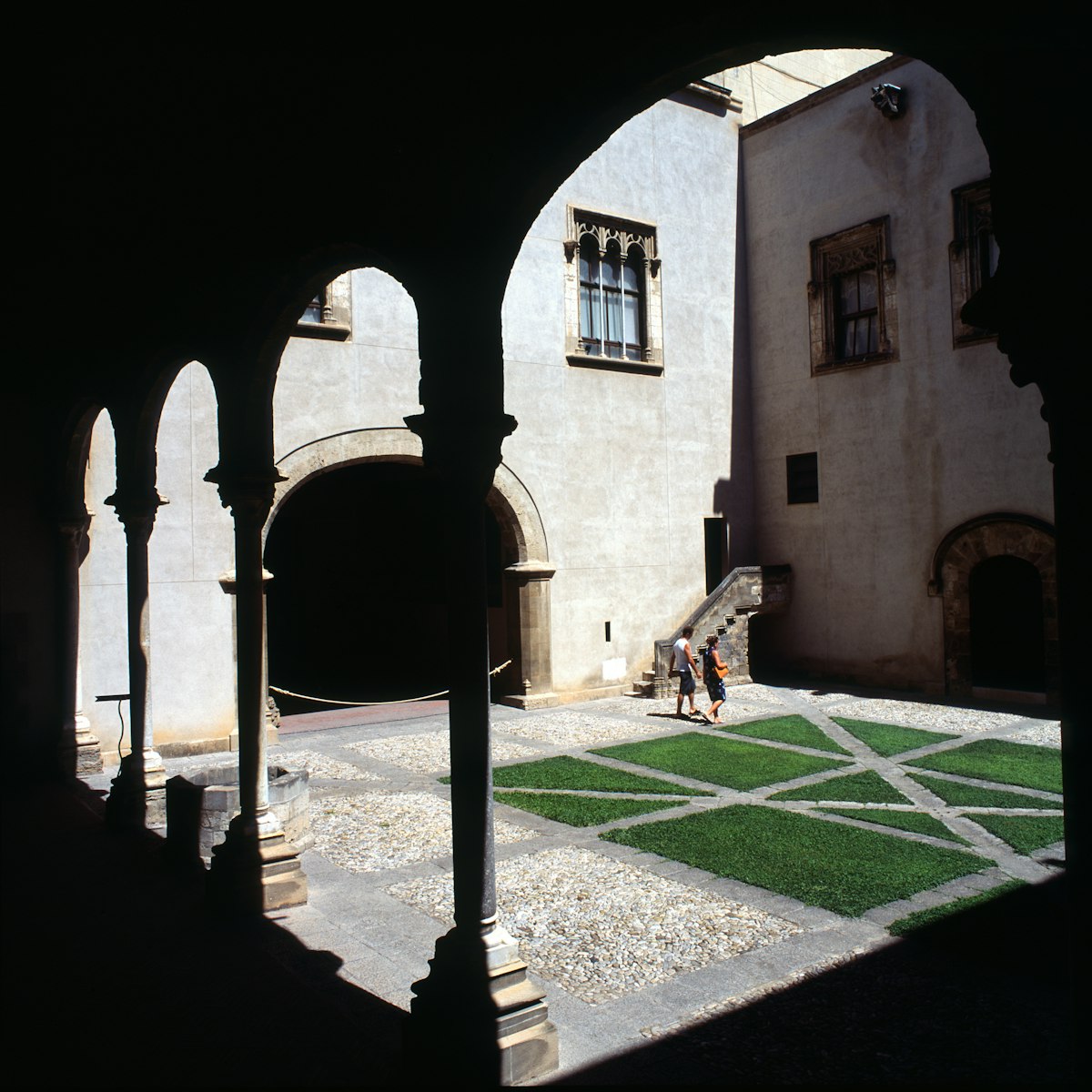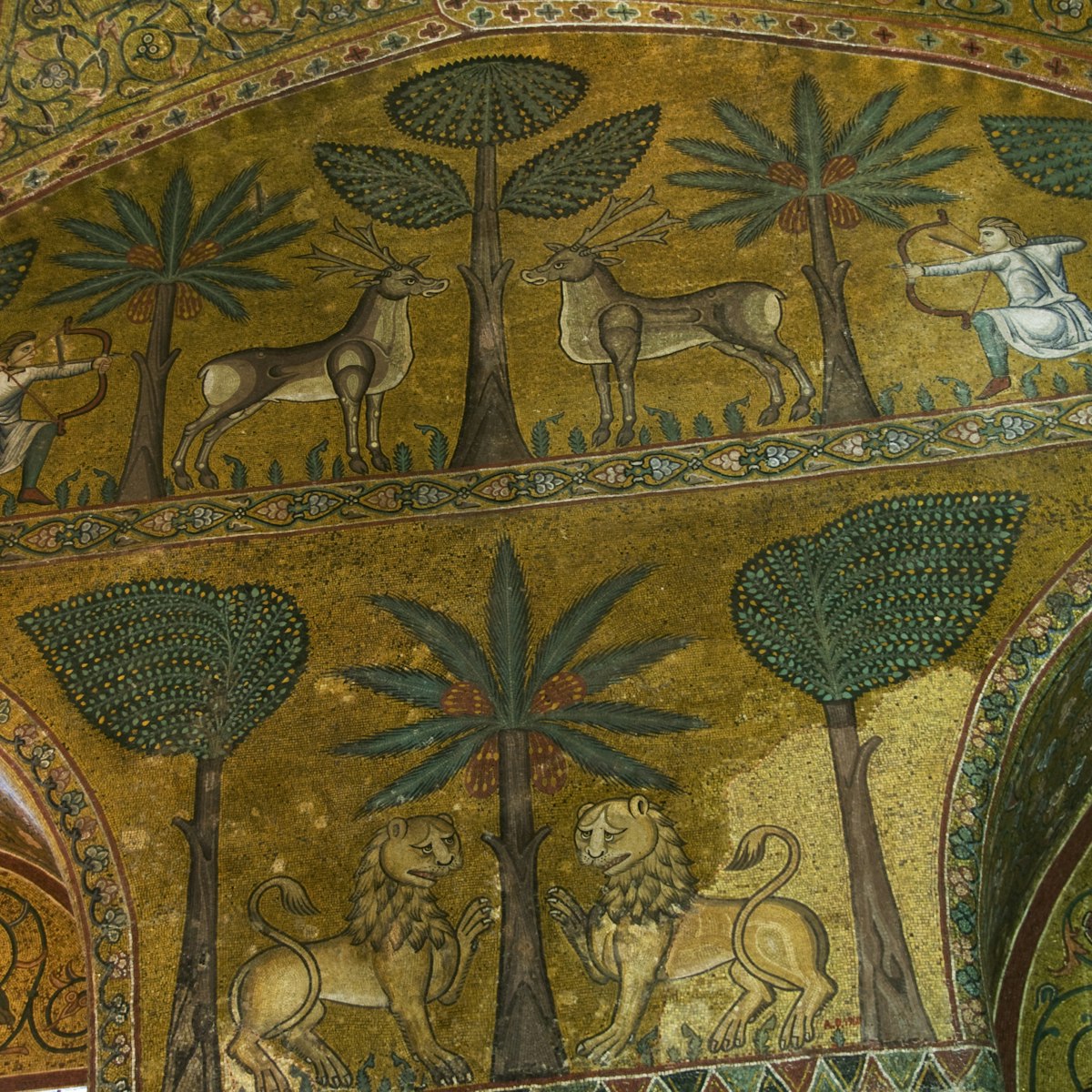A feast of geometric patterns, ziggurat crenellations, maiolica cupolas and blind arches, Palermo's cathedral has suffered aesthetically from multiple reworkings over the centuries, but remains a prime example of Sicily's unique Arab-Norman architectural style. The interior, while impressive in scale, is essentially a marble shell whose most interesting features are the royal Norman tombs (to the left as you enter), the treasury (home to Constance of Aragon's gem-encrusted 13th-century crown) and the panoramic views from the roof.
Construction began in 1184 at the behest of Palermo's archbishop, Walter of the Mill (Gualtiero Offamiglio), an Englishman who was tutor to William II. Walter held great power and had unlimited funds at his disposal, but with the building of the magnificent cathedral at Monreale he felt his power diminishing. His solution was to order construction of an equally magnificent cathedral in Palermo. This was erected on the location of a 9th-century mosque (itself built on a former chapel); a detail from the mosque's original decor is visible at the southern porch, where a column is inscribed with a passage from the Koran. The cathedral's proportions and the grandeur of its exterior became a statement of the power struggle between Church and throne occurring at the time, a potentially dangerous situation that was tempered by Walter's death (in 1191), which prevented him from seeing (and boasting about) the finished building.
Since then the cathedral has been much altered, sometimes with great success (as in Antonio Gambara's 15th-century three-arched portico that took 200 years to complete and became a masterpiece of Catalan Gothic architecture), and sometimes with less fortunate results (as in Ferdinando Fuga's clumsy dome, added between 1781 and 1801). Thankfully Fuga's handiwork did not extend to the eastern exterior, which is still adorned with the exotic interlacing designs of Walter's original cathedral. The southwestern facade was laid in the 13th and 14th centuries, and is a beautiful example of local craftsmanship in the Gothic style. The cathedral's entrance – through Gambara's three magnificent arches – is fronted by gardens and a statue of Santa Rosalia, one of Palermo's patron saints. A beautiful painted intarsia decoration above the arches depicts the tree of life in a complex Islamic-style geometric composition of 12 roundels that show fruit, humans and all kinds of animals. It's thought to date back to 1296.
To the left as you enter the cathedral, the Monumental Area harbours several royal Norman tombs, which contain the remains of two of Sicily's greatest rulers: Roger II (rear left) and Frederick II of Hohenstaufen (front left), as well as Henry VI and William II. The cathedral's treasury houses a small collection of Norman-era jewels and religious relics. Most extraordinary is the fabulous 13th-century crown of Constance of Aragon (wife of Frederick II), made by local craftsmen in fine gold filigree and encrusted with gems. More bizarre treasures include the tooth and ashes of Santa Rosalia, kept here in silver reliquaries.








